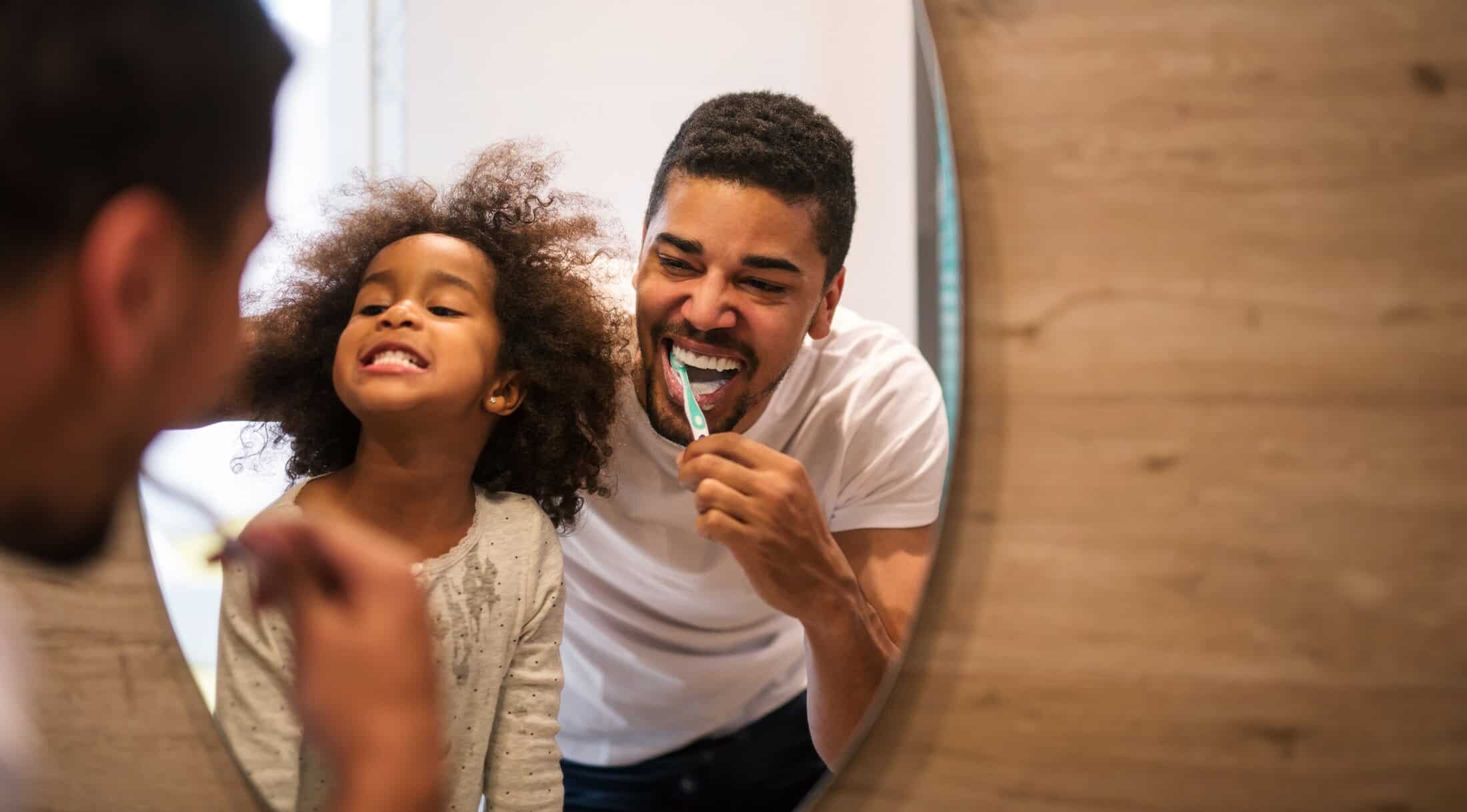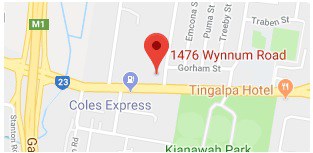Children’s teeth are more susceptible to decay than adults’ teeth and are more likely to experience dental injuries. In Australia, tooth decay in children is on the rise. Children aged 5 to 10 years have an average of one and a half decayed, missing, or filled baby teeth*. Hence, teaching your child good oral health habits that will stay with them for life is important.
Caring for your children’s oral health
It is very important to look after your child’s teeth from the moment they start teething. Many babies begin teething at around 3 months old. Their first teeth usually appear at around 6 to 9 months; by age 1, a baby will usually have around 8.
Good dental care can help to prevent cavities, gum disease, and other dental problems. Decayed baby teeth can damage the permanent teeth underneath, so it is important to set a regular oral hygiene routine. Babies can be affected by tooth decay as soon as their first teeth arrive. The first signs of decay often appear as white spots or lines on the front teeth.
If a child’s tooth is lost due to decay, it can cause crowding problems when their adult teeth come through later.
Taking your child to the dentist
Dentists usually recommend children see a dentist for the first time within 6 months of their first tooth erupting and no later than their first birthday. After that, children need to visit a dentist for routine checkups and cleanings every 6 months.
Always make a visit to the dentist a positive experience. Never use the dentist as a threat for not brushing teeth or other behaviour.

Dental care at home
In addition to routine dental checkups and cleanings, it is important to care for your child’s teeth at home. This includes:
- Brushing your child’s teeth twice a day for two minutes.
- Flossing your child’s teeth once a day.
- Limiting sugary foods and drinks.
Make a regular habit of cleaning your baby’s or child’s teeth until they are old enough. Cleaning babies’ teeth can be done by wiping with a soft cloth or brushing with a soft toothbrush and water.
Children usually start brushing when they are around seven years old.
For children from the age of 18 months, it is recommended to use low-fluoride toothpaste. Toothpaste and toothbrushes for babies or children are available at the local chemist or supermarket.
Tips to help keep your child’s teeth clean
Brushing and flossing your child’s teeth can be a challenge, but there are a few things you can do to make it easier:
- Start early. The sooner you start brushing and flossing your child’s teeth, the more likely they are to accept it as part of their routine. Their teeth should be cleaned after eating and before bed.
- Be gentle. Brush your child’s teeth using small circular motions. Ensure you floss delicately and do not snap the floss into their gums.
- Be patient. Make sure your children brush their teeth for at least 2 minutes. It may take some time for your child to learn how to brush their teeth properly.

- Be a good role model. Brush your teeth twice daily so your child can see how it’s done.
- Practice good hygiene. Replace toothbrushes or toothbrush heads every 3 months.
- Maintain a balanced diet. To develop strong teeth, make sure your child eats a healthy, balanced diet. Avoid foods with a lot of added sugar, such as lollies, biscuits, and soft drinks. Always choose fluoridated tap water.
- Make it fun. Sing a song, tell a story, or let your child choose a special toothbrush.
How to prevent dental problems in children
There are several things you can do to help prevent dental problems in your child:
- Take your child to the dentist for routine checkups and cleanings.
- Brush your child’s teeth twice a day for two minutes.
- Floss your child’s teeth once a day.
- Limit sugary foods and drinks.
- Do not let your child go to bed with a bottle of milk or juice.
- Encourage your child to break any thumb-sucking habits.
Summary
Dental care is important for everyone, but it is especially important for children. By following the tips above, you can help to ensure that your child has a healthy smile for a lifetime.
Want to book an appointment?
Book online by clicking here. Call our friendly team on 3390 6100 or email us.
* Statistics by Government of Australia Health Direct Website – https://www.healthdirect.gov.au/












This blog is very helpful and informative. Keep uploading such blogs.
Regular check-ups and preventive measures not only maintain oral health but also contribute to their overall well-being and confidence. Thanks here!
Thank you to all dental professionals for their dedication in safeguarding our children’s smiles and well-being.
Thank you, parents, for prioritizing your child’s well-being from an early age.
Grateful for the opportunity to instill lifelong habits that will safeguard their dental health.